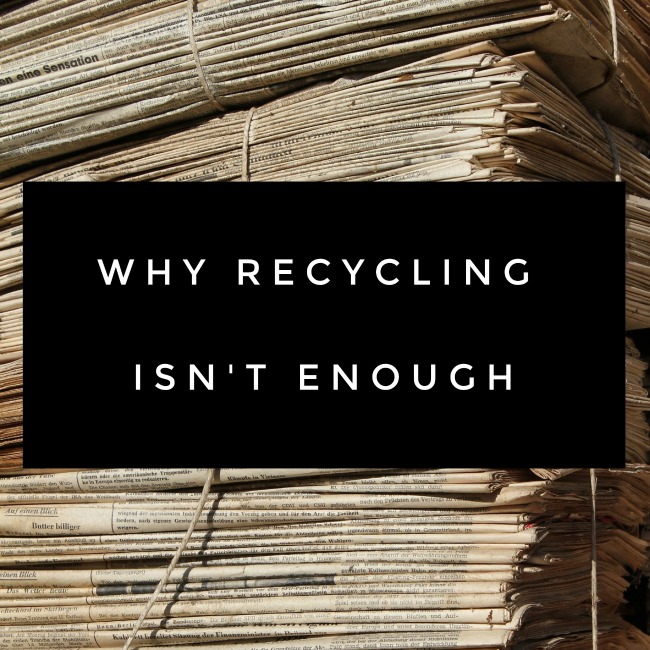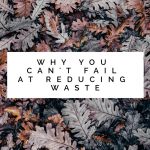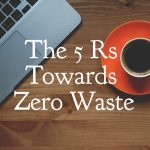Recycling is no doubt an important element of sustainable living, but recycling isn’t enough on its own. Today I want to explore why that is, and what we can do about it. I’d love to hear your thoughts on this topic as well!

First things first, I want to make it clear I’m definitely not suggesting we stop recycling! It is far better that items are recycled than they end up in landfill, but recycling alone isn’t enough.
Isn’t recycling more efficient?
For some items recycling is an excellent outcome. It only takes 5% of the energy to turn a recycled aluminium can into a new can compared to using virgin ingredients – so that’s a great result. It’s not the same for all materials though. Paper can only be recycled 7-8 times before it’s no longer usable, and even then it’s only 50% more efficient than creating new paper. Glass is just 40% more efficient, made worse by the fact we don’t separate our coloured glass here in Australia. Plastics are sensitive to heat and light so become degraded each time they are reused. As a result they are often recycled into items that are not expected to be recycled themselves.
The recycling process also needs to factor in things like the costs and emissions from the transportation of items into, and out of, the facility and the running of the recycling plant. It’s not as simple as hoping that by recycling an item we are wiping the slate clean on it and closing the loop.
Recycling is a business
This isn’t necessarily a bad thing, as if there wasn’t money to be made out of recycling items it wouldn’t happen. And we definitely want it to happen! However, because it’s a business this can result in products being stockpiled until their value increases. In recent times this has created in some devastated outcomes, like the fire at a Victorian recycling facility which tore through stockpiled paper, cardboard, glass and plastic. This resulted in toxic fumes spreading across the local area, and debris landing in the local streets. The more stockpiling that happens the more likely disasters like this are.
Stockpiling of items also means that in the meantime more virgin materials need to be used to meet consumer demand. Metals have a high market value, but things like glass tend have a lower return, so there’s less incentive to process them quickly.
Focusing on recycling avoids the real problem
As I said at the start, recycling is definitely part of the waste-reduction process, but it shouldn’t be our key focus. The more we can focus on reducing the amount of total waste we create, the less recycling we will need to do, and the better off the planet will be. By changing the focus of recycling from being the solution, to being the last resort, the more aware we all become about our choices. Closing the loop is fantastic, but making the loop smaller is even better again. We don’t have to tackle it all at once, but every little change definitely helps.






Emma
August 24, 2017 at 5:03 pm (7 years ago)I like your thinking about this problem. You are totally right and I like a lot your point about ‘focusing on recycling avoids the real problem’. That is true, we should strive to reduce the waste.As you said the recycling have to be the last resort, not a solution.
Magalys
October 10, 2017 at 8:21 am (7 years ago)I’ve been thinking a lot about recycling recently because I feel like a lot of people think they’re doing their part for the planet just because they recycle. The reality though is we all need to make major changes!